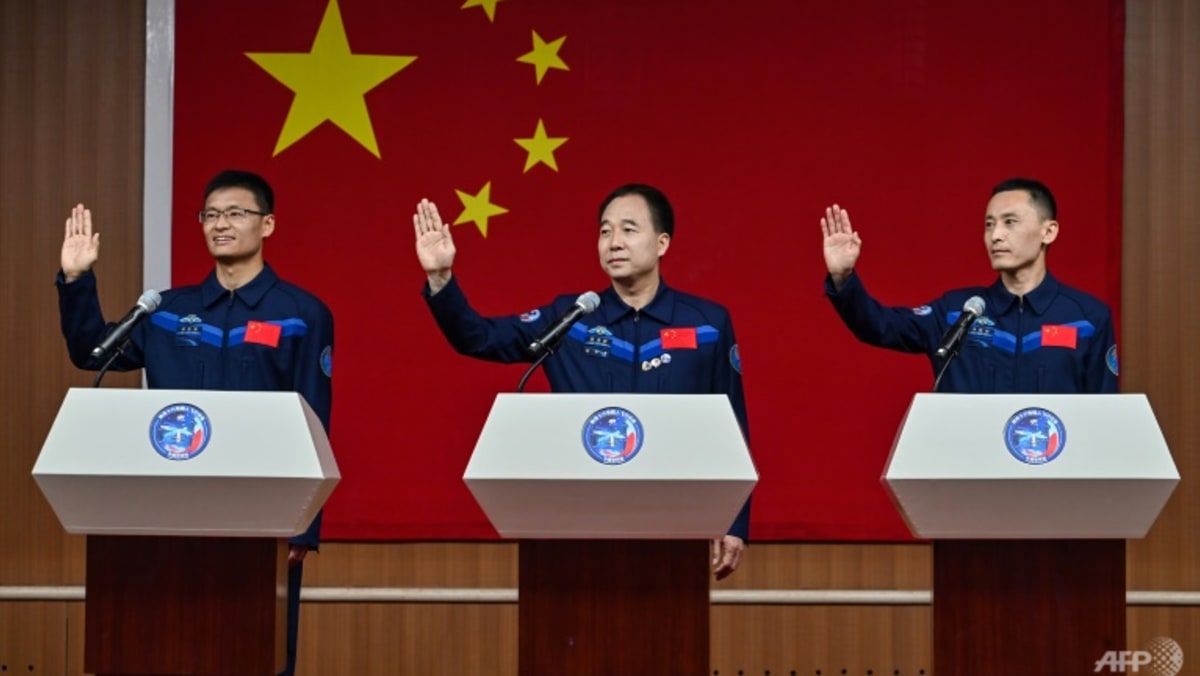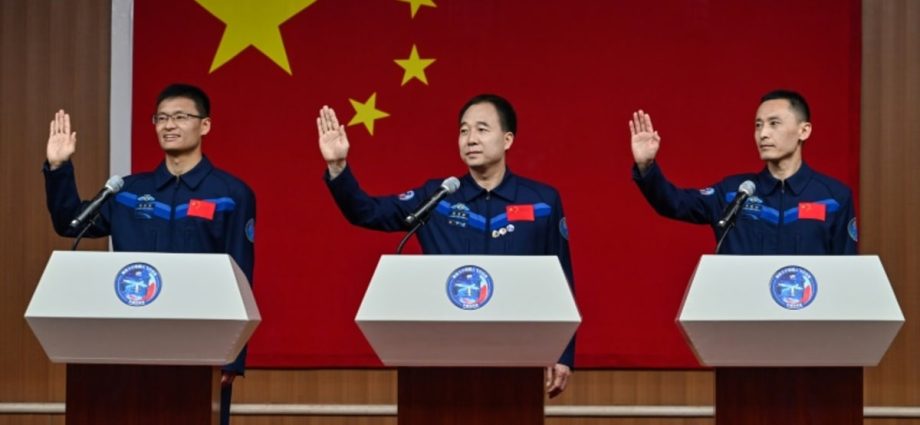
JIUQUAN, Gansu: China will send its first civilian astronaut into space as part of a crewed mission to the Tiangong space station on Tuesday (May 30) as it pursues its ambitious plans for a manned lunar landing by 2030.
The world’s second-largest economy has invested billions of dollars in its military-run space programme, trying to catch up with the United States and Russia after years of belatedly matching their milestones.
Until now, all Chinese astronauts sent into space have been part of the People’s Liberation Army.
Gui Haichao is a professor at Beijing’s Beihang University, and will manage scientific experiments on the station during the mission, China Manned Space Agency (CMSA) spokesperson Lin Xiqiang told reporters on Monday.
His mission will “carry out large-scale, in-orbit experiments … in the study of novel quantum phenomena, high-precision space time-frequency systems, the verification of general relativity, and the origin of life”, Lin said.
“I’ve always had this dream,” Gui told a press conference on Monday.
His university said he hailed from an “ordinary family” in the southwest province of Yunnan.
He had “first felt the attraction of aerospace” listening to the news of China’s first man in space, Yang Liwei, on campus radio in 2003, the institution said in a post on social media.
Gui’s addition is “particularly significant”, independent analyst Chen Lan told AFP, given previous missions only carried astronauts trained as pilots responsible for more technical tasks and not specialist scientists.
“It means that, from this mission on, China will open the door to space for ordinary people,” he said.
Gui is set to take off onboard the Shenzhou-16 spacecraft from the Jiuquan Satellite Launch Centre in northwest China on Tuesday at 9.31am local time, the CMSA said.
The commander is Jing Haipeng – on his fourth mission into space, according to state media – and the third crew member is engineer Zhu Yangzhu.
Jing said he had not gone home for nearly four years because of fears travel could disrupt his training.
“As astronauts going into space … our main responsibility and mission is striving for glory for our country,” he said at a press conference on Monday. The three will stay in Earth’s orbit for around five months.

